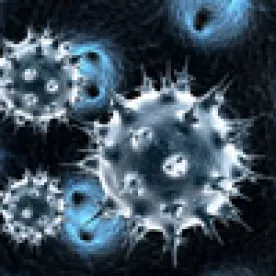The New Jersey Department of Health (DOH) has reported that seven children have died and twelve more remain infected as a result of an adenovirus outbreak in a nursing and rehabilitation facility in Wanaque.
The facility is the Wanaque Center for Nursing and Rehabilitation, and first notified the DOH of a respiratory illness outbreak on October 9. On October 19, the center sent out letters to parents of children at the facility informing them of the outbreak.
By October 23, the DOH announced that six pediatric patients had died and an additional 12 residents were infected with the illness, which was determined to be adenovirus type 7. The next day the department announced there had been a seventh pediatric death.
In order to protect patient privacy, the ages of the children are not being released, but according to a DOH spokesperson, the age ranges of the deceased children was “from a toddler through young adults—but most are under 18.”
Currently, the timing of the deaths is unclear, but the DOH announced that the Wanaque Center for Nursing and Rehabilitation has been “instructed not to admit any new patients until the outbreak ends and they are in full compliance.”
The DOH also said that there is an ongoing outbreak investigation and DOH workers were at the facility on Tuesday. A team at the facility the Sunday prior found minor handwashing deficiencies.
Previously, nurses at the Wanaque facility had reported a shortage of nursing staff and supplies, according to a statement released by the union that represents the nursing staff. The union, Health Professionals and Allied Employees (HPAE), indicated that the shortages may have led to “poor infection control practices.”
As a nursing facility, the center was subject to review by the U.S. government’s Centers for Medicare and Medicaid Services (CMS). In a review of their practices, the Wanaque Center for Nursing and Rehabilitation received an above average ranking in overall quality but was given a below average health inspection rating.
After an inspection conducted in August 2018, CMS reported that “it was determined that the facility failed to provide a clean and homelike physical environment for their residents.”
According to the DOH, the adenovirus type 7 outbreak has been “particularly associated with disease in communal living arrangements and can be more severe.”
On average, serious illness is less common with adenoviruses, but people immunocompromised or with weakened immune systems can be at a higher risk of developing serious illness.
Adenoviruses are “resistant to many common disinfectants” and can “stay stable at room temperature for weeks on unclean surfaces.”




 />i
/>i

